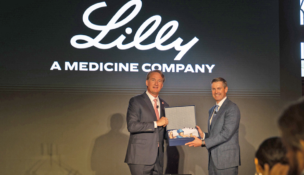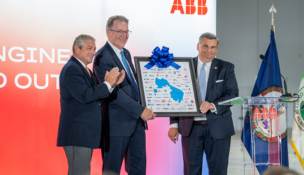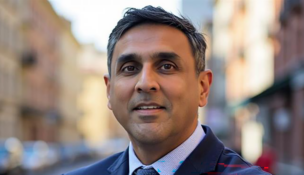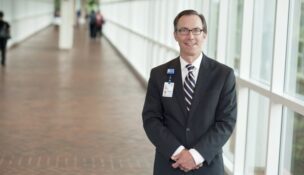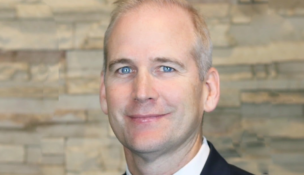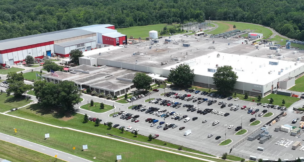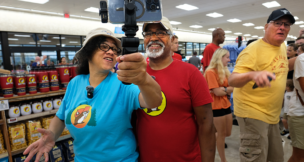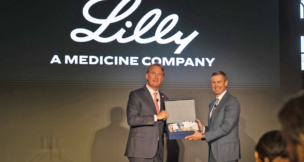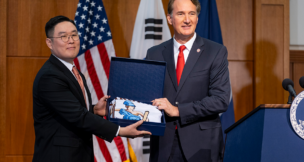UVA Health receives $50M in two anonymous gifts for Manning Institute
Funds will go toward developing cures for cancer, other diseases
Kate Andrews //June 26, 2025//

Rendering of the Manning Institute of Biotechnology's building at the Fontaine Research Park in Charlottesville. Image courtesy University of Virginia

Rendering of the Manning Institute of Biotechnology's building at the Fontaine Research Park in Charlottesville. Image courtesy University of Virginia
UVA Health receives $50M in two anonymous gifts for Manning Institute
Funds will go toward developing cures for cancer, other diseases
Kate Andrews //June 26, 2025//
SUMMARY:
- UVA Health received two $25M donations for Manning Institute of Biotechnology
- Funds will be used for translational research for cancer, Alzheimer’s and autoimmune disease treatments
- Institute’s building under construction, expected to be complete by end of 2027
UVA Health announced Thursday that two anonymous donors have given $25 million estate gifts to support the University of Virginia‘s Manning Institute of Biotechnology, funds that will go toward developing cures for cancer and neurodegenerative diseases like Alzheimer’s.
“I’m deeply grateful for the generosity and vision of these donors, whose contributions will help us to realize the full potential of the Manning Institute, and for everyone who has helped UVA Health reach this milestone,” U.Va. President Jim Ryan said in a statement. “These extraordinary gifts will support the Manning Institute’s research and aid in developing new treatments for hard-to-treat or incurable diseases, which will change lives across the commonwealth and beyond.”
Mark Esser, the Manning Institute’s head and chief scientific officer, said the two gifts are unrestricted and will help move medical research to the market stage, when patients can benefit from new treatments. The Manning Institute was launched in 2023 with a $100 million gift from Paul and Diane Manning, Charlottesville-area philanthropists, along with $150 million from U.Va. and $100 million from the state.
The institute’s 350,000-square-foot facility is under construction at U.Va.’s Fontaine Research Park, and Esser said Thursday that he expects to host a “topping off” ceremony in October, marking the construction benchmark of laying the last steel girder on the top floor. The building is expected to be completed in late 2027, Esser added.
Meanwhile, the institute is preparing to hire a chief operations officer, a job that will be advertised soon, and it is also conducting searches for “talent magnets” to join the institute’s faculty, well-regarded researchers who will draw other talented scientists to U.Va., Esser said.
“Lots of folks have already reached out to me,” said Esser, whose background is in immunology and who earned his doctorate in microbiology at U.Va. “If we can get some top talent, they’ll be excited to come here.”
The new funding will primarily be used to help progress early-stage research into development cures and treatments for cancer, autoimmune diseases and neurodegenerative illnesses, which have to be tested through clinical trials before they are available in the marketplace, Esser says.
Scientists are well aware of the Trump administration’s cuts in federal funding for all kinds of scientific research, as well as changes in priorities at the Centers for Disease Control and Prevention and the National Institutes of Health under Health and Human Services Secretary Robert F. Kennedy Jr.
In recent weeks, Kennedy dismissed 17 members of the CDC’s vaccine advisory panel and added eight new members, some of whom are known vaccine skeptics. He also has announced massive budget cuts to the CDC and NIH. In May, Kennedy said the HHS would no longer recommend COVID-19 vaccinations for healthy children and pregnant women, drawing heavy criticism from some health care workers and others.
However, Esser notes that researchers are used to adapting to changes in political priorities and funding. He noted that AI tools are helping streamline some research processes, as well as clinical testing protocol changes that allow scientists to skip animal testing and move directly to human trials, as positive developments.
“Basic biomedical research is a little bit up in the air,” he said. “Certainly the university is addressing that … but I think the Manning Institute actually provides us an opportunity to really think creatively and differently on how we’re going to fund biomedical research. I’m actively talking to folks in the state, obviously philanthropists and some very generous benefactors to the university. But also the private sector, from venture capital to pharmaceutical companies, have all expressed an interest in funding some of the research here at the University of Virginia.”
i


